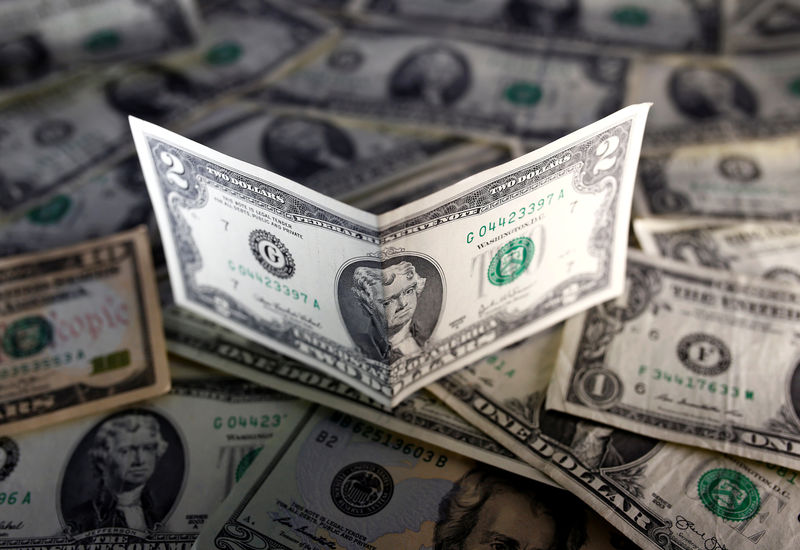By Gina Lee
Investing.com – The dollar was down on Tuesday morning in Asia, alongside the Japanese yen and the Australian dollar. The latest COVID-19 outbreak in China saw lockdowns in some cities, but the focus is firmly on the U.S. Federal Reserve’s March policy decision.
The U.S. Dollar Index that tracks the greenback against a basket of other currencies inched down 0.08% to 98.948 by 11:07 PM ET (3:07 AM GMT).
The USD/JPY pair edged up 0.11% to 118.31, with the Bank of Japan (BOJ) handing down its policy decision on Friday.
The AUD/USD pair inched down 0.08% to 0.7181. The Reserve bank of Australia released the minutes from its last meeting earlier in the day, and the NZD/USD pair inched down 0.01% to 0.6744.
The USD/CNY pair edged up 0.16% to 6.3754. Chinese data released earlier in the day showed that fixed asset investment grew 12.2% year-on-year in February. Industrial production grew 7.5% year-on-year and retail sales grew 6.7% year-on-year, while the unemployment rate was 5.5%.
The GBP/USD pair edged up 0.20% to 1.3026, with the Bank of England to hand down its policy decision on Thursday.
The Fed is widely expected to hike interest rates for the first time since the pandemic when its hands down its policy decision on Wednesday. Investors expect a 25 basis point rise at this meeting, according to the CME's Fedwatch tool. However, pricing has risen to indicate a 70% chance of a larger 50 basis point hike at the May 2022 meeting, thanks to increasing concerns about inflation.
"We think the Fed statement and Chairman Jerome Powell's press conference after the meeting will be influential in terms of market pricing for a 50 basis point rise in May and beyond, and that will impact the U.S. dollar intraday," Commonwealth Bank of Australia (OTC:CMWAY) FX strategist Carol Kong told Reuters.
The dollar index was not far off the 99.415 touched a week ago, its highest level since May 2020.
The yen recorded sharp drops in recent sessions, as the difference in the policies adopted by the Fed and BOJ becomes more noticeable.
Hopes that Ukraine and Russia will reach a negotiated end to the war triggered by Russia’s invasion on Feb. 24 also took some of the yen’s safe-haven appeal away.
The two countries held a fourth round of talks on Monday, but no new progress was reportedly made. The talks will resume on Tuesday.
Meanwhile, the Chinese yuan weakened to a one-month low against the dollar on Monday. Rising expectations of looser monetary policy and the COVID-19 lockdowns weighed on the Chinese currency.
The offshore yuan was softer at 6.398 per dollar, but the People's Bank of China kept the one-year medium-term lending facility unchanged at 2.85% in a surprise decision earlier in the day.
The situation in China was also weighing on the Australian dollar, according to Kong. The Aussie continued a downward trend, after falling 1.5% on Monday, as commodity prices eased from their earlier rally.
